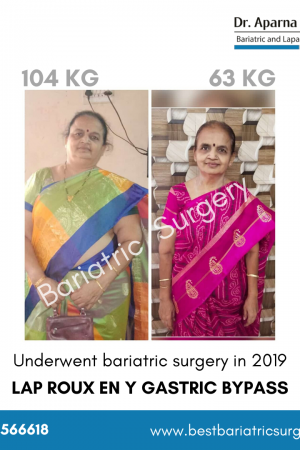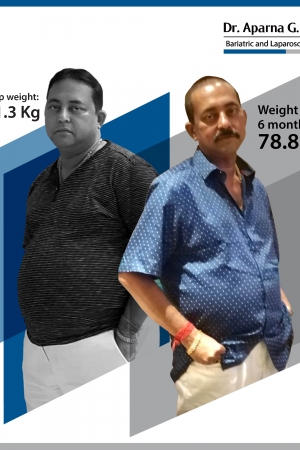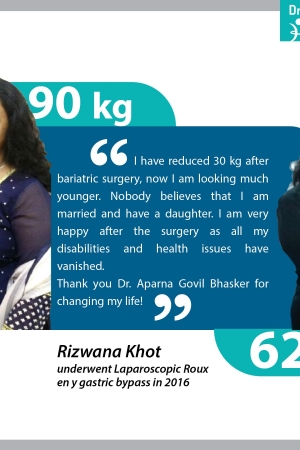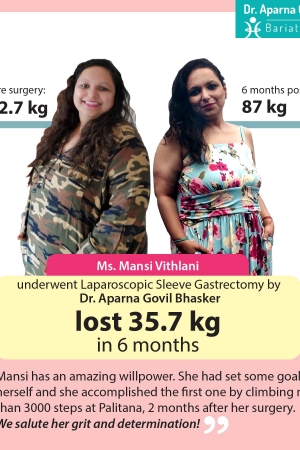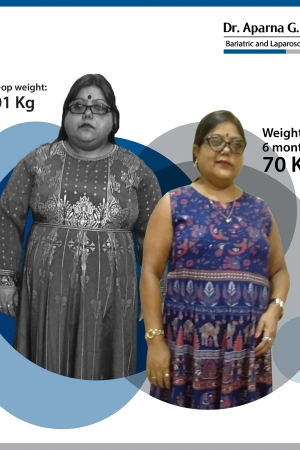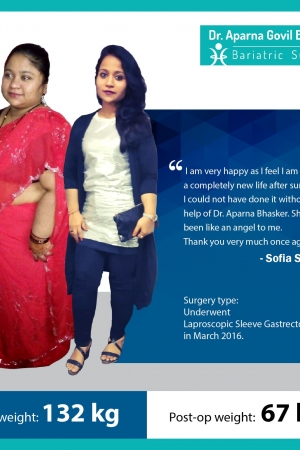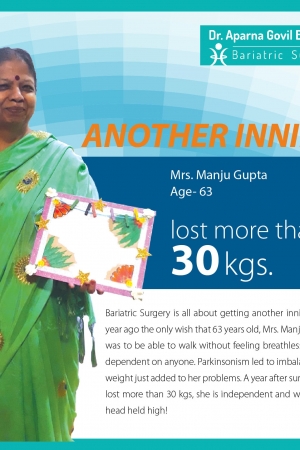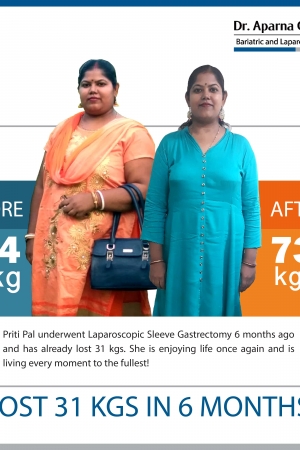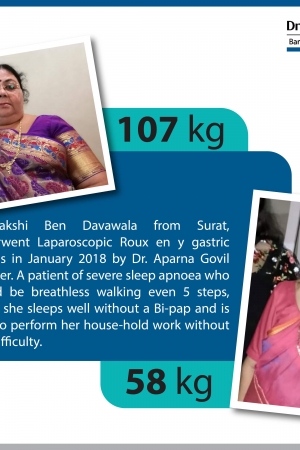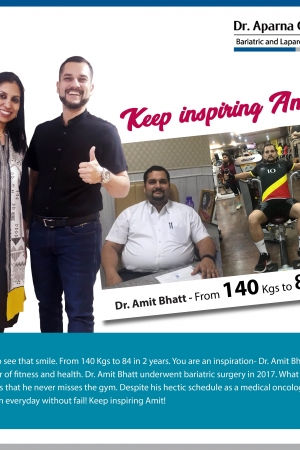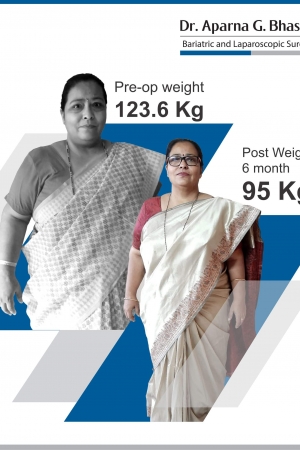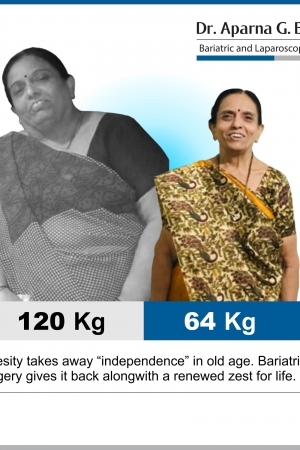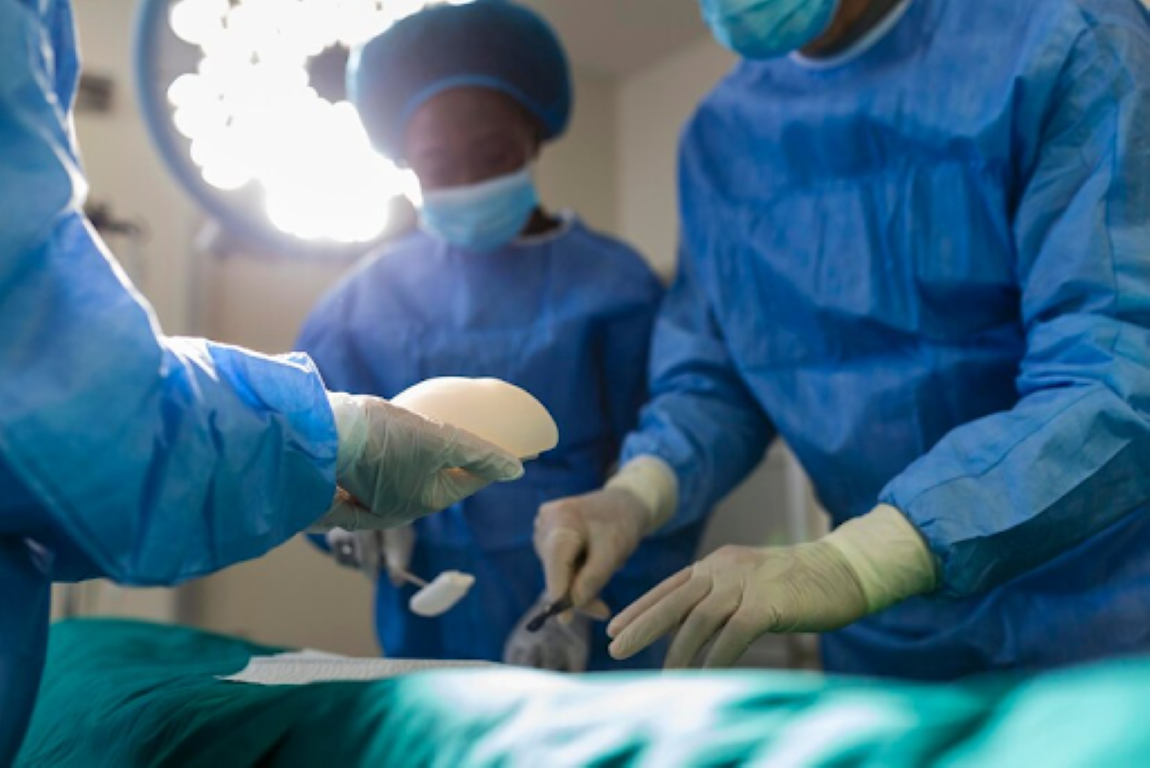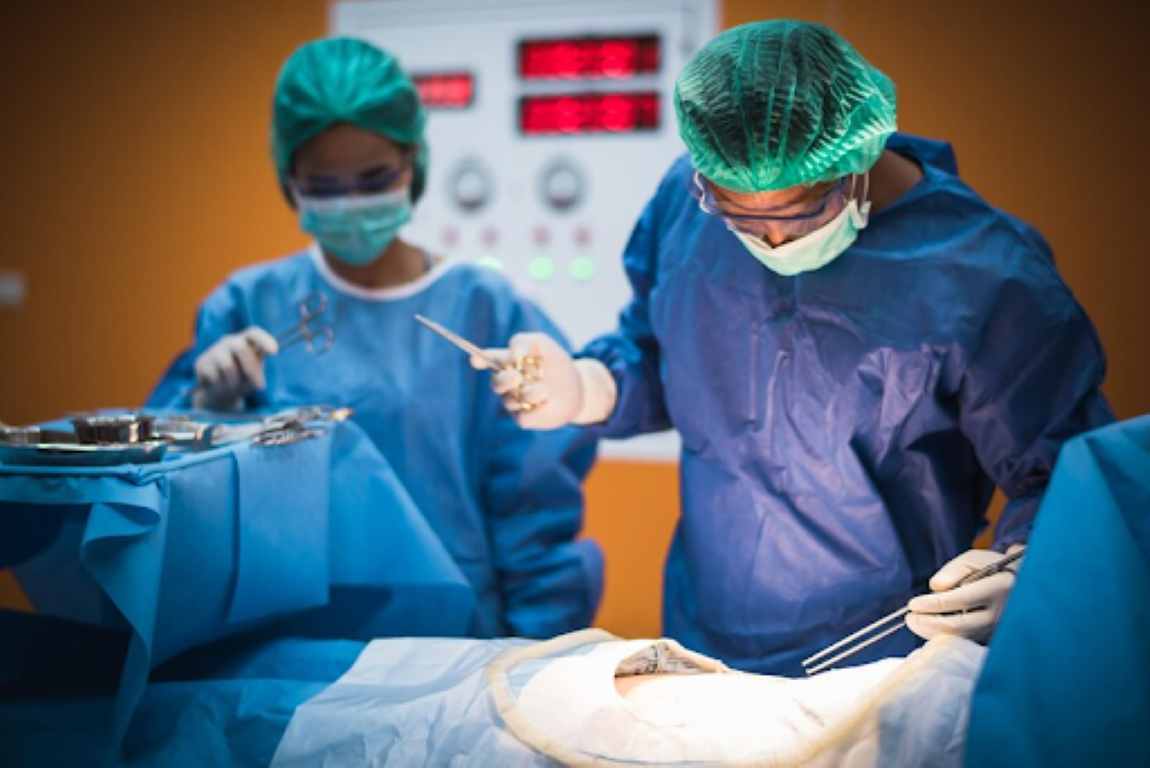
Metabolic Surgery for Diabetes in Mumbai, India
- Home
- Metabolic Surgery for Diabetes in Mumbai, India
Metabolic Surgery for Diabetes in Mumbai, India
Metabolic Surgery for Type 2 Diabetes in Mumbai, India
Every 21 seconds someone is diagnosed with diabetes and diabetes claims 4 million lives every year. While deaths due to heart disease have come down, diabetes has emerged as the leading cause of death in the last few years. Unfortunately, developing nations are bearing the brunt of this disease. There has been a huge progress in the treatment of diabetes in the last few decades. Diet, exercise and medications remain the cornerstone of diabetes therapy but unfortunately only 7.3% patients are able to reach the composite goal of medical therapy with these therapies. Remaining 92.3% patients struggle to meet the goals of treatment despite being on multiple medications which include insulin therapy.
There are also many barriers that prevent the patients from reaching their treatment goals. First and foremost is that as the number of drugs in the prescription go up, patient compliance comes down. Some patients are on as many as 10 to 20 drugs that need to be taken on a daily basis. Some of these drugs have many side effects and eventually get banned, a case in point being Avandia which was banned in India a few years ago. Hypoglycemia is another big challenge that is faced by patients on a regular basis. In addition to this as the diabetes progresses, patients need to progress onto taking multiple shots of insulin. This is not only painful but psychologically very demotivating as well. Natural history of type 2 diabetes is such that long term complications of this disease are unavoidable. Long duration diabetes eventually leads to kidney disease, heart disease, eye problems and neuropathy etc. Once these complications set in, it is difficult to reverse the disease process.
Metabolic surgery for type 2 diabetes is not a new concept. Almost 60 years ago, some gastro-intestinal surgeons observed that patients who underwent stomach cancer surgery also showed improvement in diabetes. In 1995, a landmark study was published in the United States and it showed that bariatric surgery not only led to weight loss, but it also led to a significant improvement in diabetes. Infact, many patients could stop taking their anti-diabetic medicines soon after the surgery. This germinated the idea for metabolic surgery in mumbai.
In 2009, the American diabetes association formally included weight loss surgery in the treatment algorithm of type 2 diabetes. Infact, in 2015, many international diabetes federations came together in London during the Diabetes Surgery Summit and charted the guidelines for indications of metabolic surgery in mumbai. The consensus guidelines are as under:
Predictors of good results after metabolic surgery for type 2 diabetes
Metabolic surgery in mumbai is indicated for a very specific set of people. Over the years, certain predictors of good outcome after metabolic surgery for diabetes have been identified. They are listed as under:
- Shorter duration of type 2 diabetes- type 2 diabetes of less than 5 years duration has the best results in terms of remission after metabolic surgery in mumbai. Results are equivocal in patients with very long duration of diabetes.
- Good pancreatic function- patients with good c-peptide levels have a better chance at remission of type diabetes. Those with less pancreatic reserves do not get very good outcomes after metabolic surgery for diabetes.
- Younger age- patients who are younger tend to get better results after metabolic surgery in india.
- BMI- higher the BMI, greater the chance of remission of diabetes after metabolic surgery in india.
- Insulin use- insulin use is a negative predictor. Patient who are not on insulin tend to do better after metabolic surgery for diabetes.
Proposed mechanisms of diabetes remission after metabolic surgery in india
Metabolic surgery for type 2 diabetes functions on the basis of weight dependent and weight independent mechanisms.
Weight dependent mechanisms are as under:
- Caloric restriction
- Massive weight loss leading to a decrease in insulin resistance
Extremely rapid remission of type 2 diabetes after metabolic surgery in india suggests that there may be certain weight independent mechanisms as well. These are mentioned below:
- Rapid transit of food into the distal small intestines leads to early release of gut hormones like GLP1 and PYY. These have a favourable effect on amelioration of type 2 diabetes after surgery.
- Role bile acids
- Role of gut flora
On the diabesity highway, obesity, type 2 diabetes, high blood pressure and dyslipidemia are dead ends without any exits. Metabolic surgery is the only U-turn that may lead to improvement in these conditions alongwith weight loss.
Metabolic surgery for diabetes has given hope to thousands of obese diabetic patients who have been struggling not only with their weight but also controlling diabetes. It has also been observed that surgery actually turns out to be more cost effective in the long term as compared to medical treatment alone. Metabolic surgery in mumbai cost may appear to be higher as a one time cost but the surgery recovers its cost in the first 6 years. Metabolic surgery in india for type 2 diabetes cost depends on many factors. Cost of metabolic surgery for diabetes depends on the duration of surgery, type of procedure performed and the equipment used etc. cost of metabolic surgery for type 2 diabetes also depends on the duration of your stay in the hospital. The cost will be explained to you in detail by the team during your consultation.
Metabolic Surgery for Type 2 Diabetes Patients Before After Photos
Metabolic Surgery for Type 2 Diabetes Patient LIVE VIDEO Testimonials
About Dr. Aparna Govil Bhasker
Dr. Aparna Govil Bhasker is an accomplished Bariatric Surgeon and Laparoscopic GI Surgeon. Extremely passionate about her field of specialization. She completed her MBBS and MS in General Surgery in 2006, from Mahatma Gandhi Institute of Medical Sciences (MGIMS), Sewagram. Set up in 1967 by none other than the first health minister of India, Ms. Sushila Nayar, MGIMS is deeply rooted in Gandhian ethics. Read more


Surgeon in India
- Intra-Gastric Balloon Insertion Surgery
- Laparoscopic Adjustable Gastric Banding Surgery
- Gastric Sleeve Surgery / Laparoscopic Sleeve Gastrectomy
- Single Incision Sleeve Gastrectomy Surgery
- Laparoscopic Roux-en Y Gastric Bypass Surgery
- Laparoscopic Banded Roux-en Y Gastric Bypass Surgery
- Laparoscopic Mini Gastric Bypass Surgery /Omega Loop Bypass
- Laparoscopic Sleeve Gastrectomy with Duodeno-Jejunostomy Surgery
- Laparoscopic Duodenal Switch Surgery
- Laparoscopic Sleeve Gastrectomy with Duodenal Ileostomy (SADI) Surgery
- Laparoscopic Revisional/Redo Bariatric Surgery
- Metabolic Surgery for Diabetes
- Terms & Conditions
- Privacy Policy
- Sitemap




